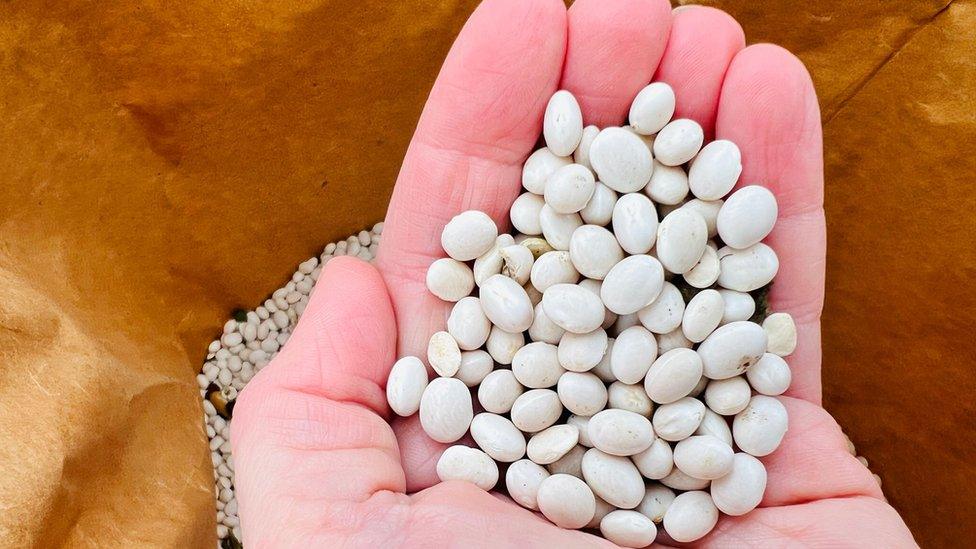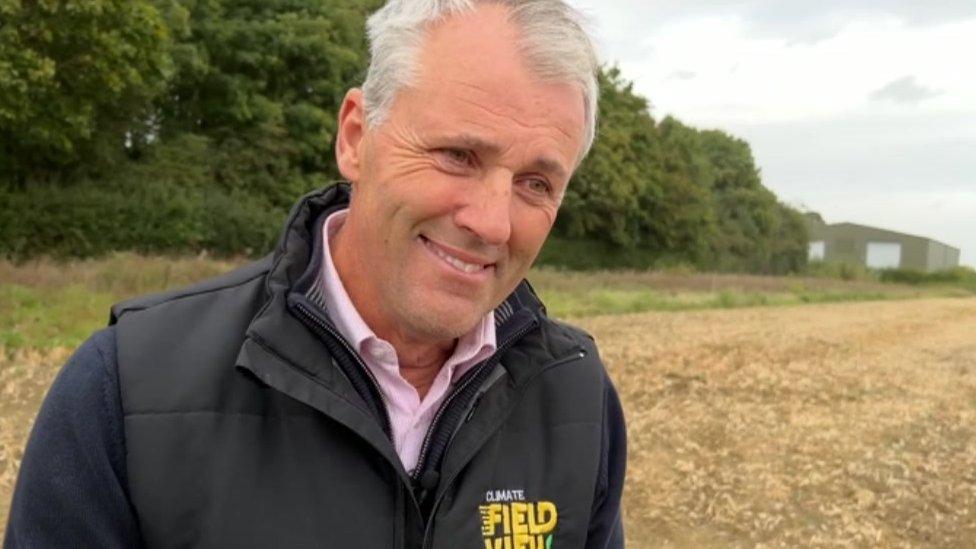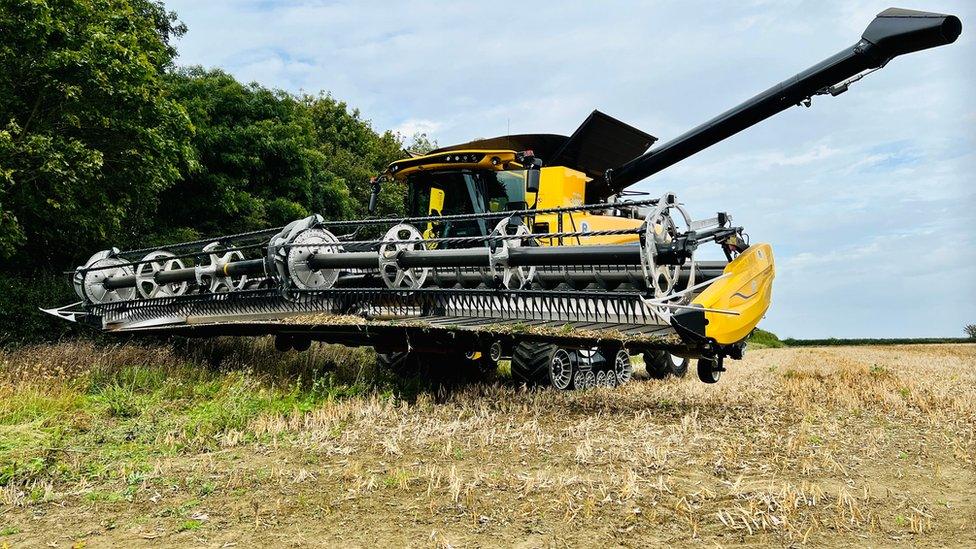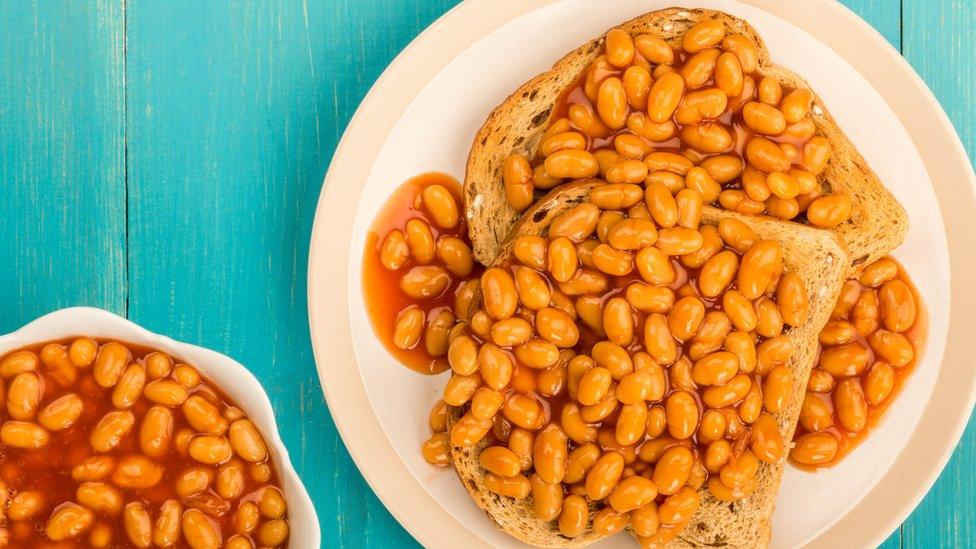British baked beans become reality after successful Lincolnshire harvest
- Published

Farmer Andrew Ward harvested the first commercial crop of haricot beans in Leadenham
British-grown beans on toast is to become a reality after the first commercial crop of haricot beans was successfully harvested in Lincolnshire.
The UK's farmers had previously been unable to grow the variety - used for baked beans - because it was unsuited to the country's climate.
But University of Warwick scientists developed a specially adapted seed that can thrive in British soil.
Farmer Andrew Ward said this week's harvest was "very exciting".
Mr Ward, who grew the legumes in a 13-acre field in Leadenham, said it had been "one of the most stressful experiments" due to unpredictable weather and the need for specialist harvesting equipment.

Farmer Andrew Ward said the project had been "turbulent" and "stressful"
A smaller-scale trial in 2022 had failed due to the summer heatwave.
The new variety, named the Capulet, took 12 years to develop and could reduce the UK's reliance on imported beans.
The country consumes around two million tins of baked beans a day, all of them made from haricot grown in other countries such as the US, Canada, Ethiopia and China.
Some health food brands have attempted to market British-grown fava beans as "baked beans", but they have lacked mass appeal due to the difference in taste to haricots.
Rebecca White, a crop specialist from agriculture consultants Agrii and a partner on the project, said British families were "baked bean connoisseurs".
She said: "They will only accept the familiar taste and texture of haricot beans on toast - and this is what we have given them."

Specialist harvesting equipment was used to collect the beans
Half of the crop will be tinned and half be used as seeds next year.
Mr Ward said: "The only seed that is available in the world of this variety is what we have here.
"We need to replant next year to grow the availability of British baked beans and reduce our reliance on imports."
The seeds can be sown in early May and harvested as a dry grain in September during the UK's warmer months.
Prof Eric Holub, from the university's Life Sciences department, said the beans had been bred from "inherited material that had been used here on the university farm in the 1970s and 80s".
"It was put into storage, and it was 2011 that I realised that there was some valuable material and I started reviving it," he told the BBC in June.

Follow BBC East Yorkshire and Lincolnshire on Facebook, external, X (formerly Twitter), external, and Instagram, external. Send your story ideas to yorkslincs.news@bbc.co.uk, external
Related topics
- Published16 June 2023
